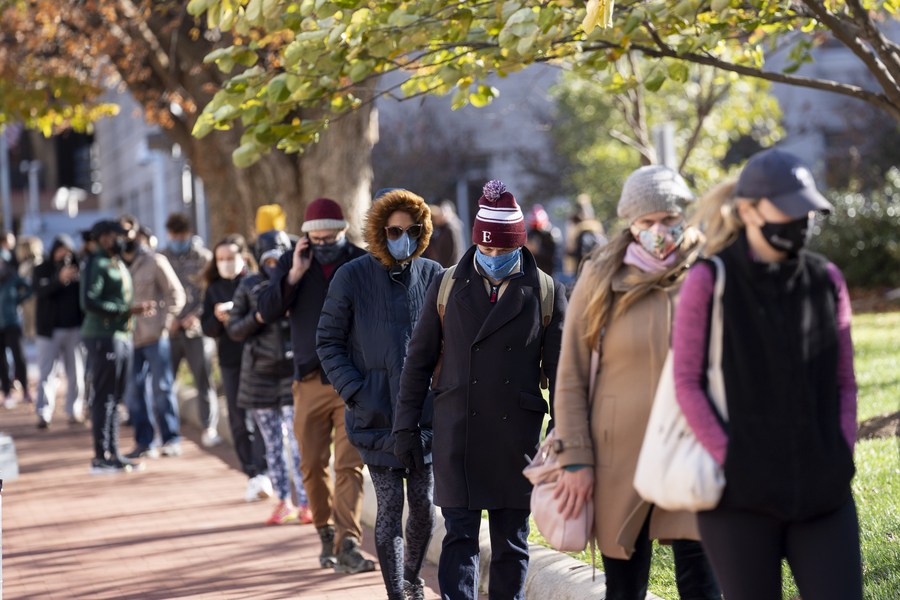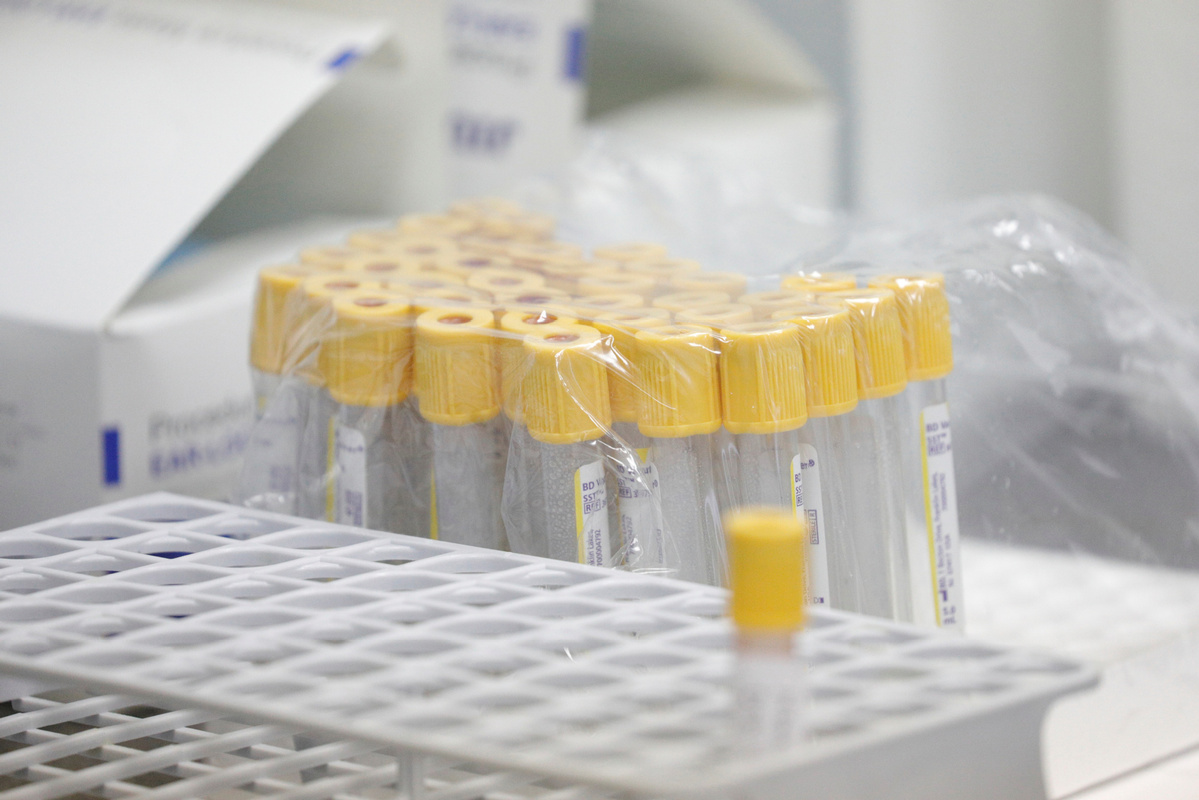Countries likely had virus earlier, CDC finds
By ZHAO HUANXIN in Washington | China Daily Global | Updated: 2020-12-02 09:15

The novel coronavirus infected people in the United States in mid-December 2019, a government study has found, adding to growing evidence that COVID-19 was likely present in countries such as the US, Italy and France sooner than previously thought.
Scientists at the US Centers for Disease Control and Prevention (CDC) found evidence of infection in 106 of 7,389 blood donations collected from residents in nine states across the US as early as mid-December, according to their study published online in the journal Clinical Infectious Diseases Monday.
The new study provides a perspective into unraveling the mysterious origin of COVID-19, as other scientific papers also suggested the novel coronavirus emerged in France in late December and in Italy even earlier — around the time or before it was officially identified in China.
As of Tuesday, there had been at least 63.6 million confirmed cases of the virus, which claimed the lives of more than 1.47 million globally, including nearly 270,000 in the US, according to John Hopkins University data.
China reported cases of what people then called "pneumonia of unknown cause" on Dec 27, according to a white paper "Fighting COVID-19: China in Action" published in June. The World Health Organization (WHO) said it received China's official report on the cluster of cases on Jan 3.
The specimens for the US study, gathered by the American Red Cross between Dec 13 and Jan 17, were sent to the CDC for retrospective testing to see if any had antibodies to SARS-CoV-2, the respiratory virus that causes COVID-19.
As a result, scientists found anti-SARS-CoV-2 antibodies in 39 samples from California, Oregon, and Washington state, collected as early as Dec 13-16. Their presence indicate that isolated infections may have occurred in the western portion of the US in mid-December, according to the CDC scientists.
The state of Washington was where the first patient in the United States was given a diagnosis of infection with the virus by the CDC on Jan 20. The state reported at least 165,000 confirmed cases as of Tuesday, with more than 2,770 deaths.
Antibodies also were found in 67 samples in Massachusetts, Michigan, Wisconsin or Iowa, and Connecticut or Rhode Island, collected between Dec 30 and Jan 17.
"These findings suggest that SARS-CoV-2 may have been introduced into the United States prior to January 19, 2020," the authors wrote.

The Wall Street Journal, in reporting the research on Tuesday, said the results add to "growing evidence" suggesting COVID-19 was present outside of China earlier than previously known.
"The findings significantly strengthen evidence suggesting the virus was spreading around the world well before public health authorities and researchers became aware, upending initial thinking about how early and quickly it emerged," it said.
Researchers found the virus, for example, in a retrospective analysis of a specimen from a patient who was hospitalized in France on Dec 27, 2019, the Journal reported.
That was weeks before the first cases were confirmed in France on Jan 24, 2020.
In Italy, where the first COVID-19 patient was detected on Feb 20, researchers are providing evidence that the virus may have been circulating since September 2019.
The Italian researchers' findings, published by the National Cancer Institute's scientific magazine Tumori Journal on Nov 11, show that 11.6 percent of 959 healthy volunteers participating in a lung cancer screening trial between September 2019 and March 2020 had developed coronavirus antibodies.
A further specific SARS-CoV-2 antibodies test was carried out by the University of Siena for the same research titled "Unexpected detection of SARS-CoV-2 antibodies in the pre-pandemic period in Italy", according to a Reuters report.
It showed that four cases dated to the first week of October also were positive for antibodies neutralizing the virus, meaning they had got infected in September, according to Giovanni Apolone, a co-author of the study quoted by Reuters.
WHO Director-General Tedros Adhanom Ghebreyesus said his agency is committed to doing everything it can to find the origins of the novel coronavirus, as it can help the world prevent future outbreaks, but he urged countries not to politicize the hunt.
"What has been a barrier and trying to derail us from what we have been doing scientifically was the politicization of the study of the origin of the virus from some quarters," Tedros said at a daily briefing in Geneva on Monday.
An international team of experts will start the study from Wuhan to know what has happened there, and then "based on the findings we have there, to explore if there are other avenues that we have to explore", the WHO chief said.
























